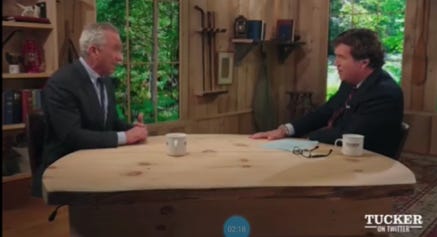The USA PATRIOT Act (Uniting and Strengthening America by Providing Appropriate Tools Required to Intercept and Obstruct Terrorism Act of 2001) was a landmark piece of legislation passed in the wake of the 9/11 attacks. It granted significant new powers to both domestic law enforcement and international intelligence agencies. The goal of the legislation was to bolster efforts to detect and deter terrorism, but it sparked significant concerns about the potential erosion of civil liberties.
Some of the core aspects of the PATRIOT act that drew criticism from civil liberties advocates included:
Section 215 – Tangible Things: Often referred to as the "business records" provision, this section allowed the FBI to order any person or entity to hand over "any tangible things" so long as the FBI specifies that the order is "for an authorised investigation… to protect against international terrorism or clandestine intelligence activities."
Section 206 – Roving Wiretaps: This section authorised the use of roving wiretaps, which means that if a suspect changes communication devices (like switching phones), the surveillance order would still apply.
Section 213 – Sneak and Peek Warrants: This section allowed law enforcement to execute search warrants without immediately notifying the subject of the search.
Section 216 – Pen Register and Trap and Trace: This section expanded the use of these devices to capture the sending and receiving addresses of email and web browsing history.
Section 505 – National Security Letters (NSLs): This allowed the FBI to order the disclosure of customer records held by banks, internet service providers, telephone companies, and others. These came with a gag order, preventing the recipient from disclosing the NSL.
Material Support Provisions: These made it a crime to provide "material support" to terrorist organisations. However, the definition of "material support" was seen as quite broad.
Expansion of FISA (Foreign Intelligence Surveillance Act) Powers: The PATRIOT Act made changes to FISA, reducing the standards required to surveil foreign persons. The Act expanded the definition of "agent of a foreign power" to possibly include U.S. citizens.
Furthermore, it reopened the bioweapons arms race.
All very interesting but I’m sure you know all about the PATRIOT Act. So did I. However, what I didn’t realise was its connection to the anthrax attacks after 9/11 until I watched the recent RFK Jr interview with Tucker Carlson.
In fact, Tucker didn’t know about the link either and when RFK Jr told him, it took him aback and he replied with “wait, wait, wait, wait, wait…really"!?”
So I decided to have a look to see if RFK Jr was correct…and he was, so the timeline of RFK Jr’s revelation is below.
As we all know the attacks on the World Trade Center (& don’t forget building no. 7) and the Pentagon occurred on September 11, 2001.
Within days of the attacks, a legislative proposal aimed at enhancing the powers of US law enforcement agencies was already in the works. Attorney General John Ashcroft, with the Bush Administration, played a primary role in drafting the initial version of the bill.
The initial draft of the PATRIOT Act, which was presented to Congress, granted broad powers with limited oversight.
Two Senators in particular were concerned about protecting civil liberties and played key roles in the Senate’s review of the proposed legislation. These Senators were Tom Daschle, who was Senate Majority Leader at the time and Patrick Leahy, who chaired the Senate Judiciary Committee. They both pushed for modifications, additional oversight provisions and sunsets for certain controversial sections of the bill.
From mid September to mid October, letters laced with anthrax were sent to media outlets and two Senators. Can you guess who the two Senators were? You guessed it - Tom Daschle and Patrick Leahy.
This led to the closure and decontamination of several areas, especially the Hart Senate Office Building, where Daschle’s office was located.
On 23 October the House of Representatives passed the PATRIOT ACT. The Senate passed it on 25th October and Bush signed it into law on 26th October.
The anthrax attacks contributed to an already heightened state of concern and urgency in Congress. This climate undoubtedly played a role in the speed and decisiveness with which the PATRIOT Act was passed. Whilst Daschle and Leahy had reservations and were directly involved in the legislative process, after the anthrax attacks they voted for the Act with only Senator Russ Feingold voting against it.
But where did the anthrax come from?
The FBI led the investigation and named it “Amerithrax”. It was established that the anthrax used in the letters was a highly refined and virulent strain. However, no direct connection was made between the anthrax attacks and the 9/11 terrorist attacks.
After a prolonged investigation that faced various challenges, in 2008, the FBI announced that Dr. Bruce Ivins, a scientist at the U.S. Army Medical Research Institute of Infectious Diseases (USAMRIID), based at Fort Detrick in Maryland, was the primary suspect.
Conveniently, before he could be charged, Ivins apparently killed himself in July 2008. The FBI closed the case in 2010, asserting that Ivins acted alone in planning and executing the attacks. However, some, including colleagues of Ivins and independent experts, have disputed this conclusion, suggesting that Ivins might not have had the means, motive, or opportunity to commit the attacks.
And that is the remarkable story of how the PATRIOT Act came into being. I now understand why Tucker was so gobsmacked when he heard the story.





PATRIOT Act wasn't just in the works, it was pretty much already written and waiting when the towers came down.
This was one of those 'unspeakables' while it was happening, and the internet was still young enough that controlling the information was still possible from the top down.
If we want to look for today's leaders, we should be looking at the people who were speaking up against the USA PATRIOT Act back then!